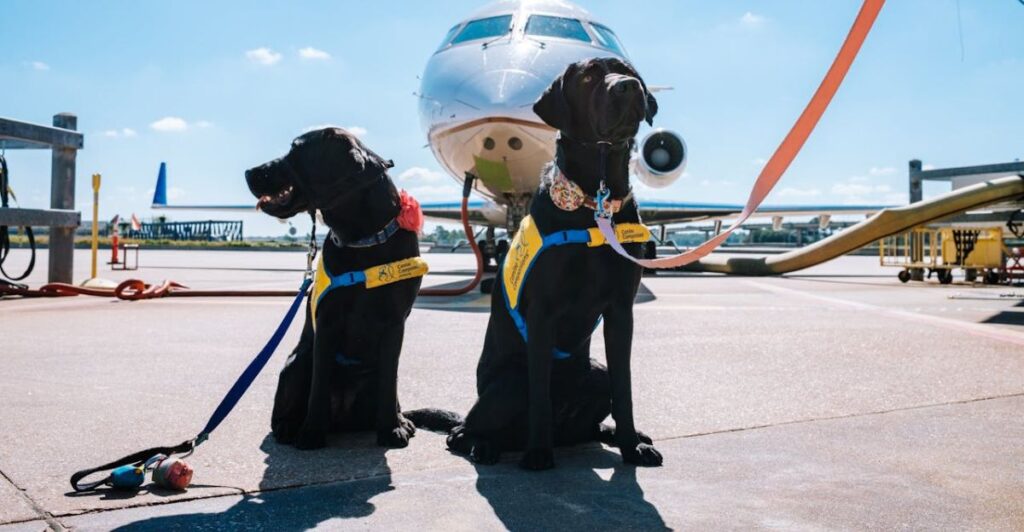
Dogs have a knack for understanding us in ways that often defy explanation. Some take this connection to a remarkable level by providing life-changing support to people with disabilities. These incredible assistance dogs go beyond being loyal companions; they become lifelines to help their handlers lead safer, more independent lives.
Each type of assistance dog specializes in a unique role, to use training, instinct, and dedication to address specific needs. By the time you’ve met all twelve of these unsung canine heroes, you’ll see just how versatile and impactful their contributions can be. Their work is a tribute to the enduring bond between humans and dogs and showcases a partnership that truly changes lives.
1. Balance Assistance Dogs

Assistance animals offer vital help for those facing balance challenges. Trained to aid individuals with conditions like Parkinson’s or multiple sclerosis, they provide stability while walking on uneven ground. They can also brace themselves, allowing handlers to use them as support when standing up.
Beyond physical assistance, their presence restores confidence, making daily activities safer and less intimidating. By enabling greater mobility and independence, these companions enable their handlers to approach every step with renewed assurance and ease.
2. Brace and Mobility Support Dogs
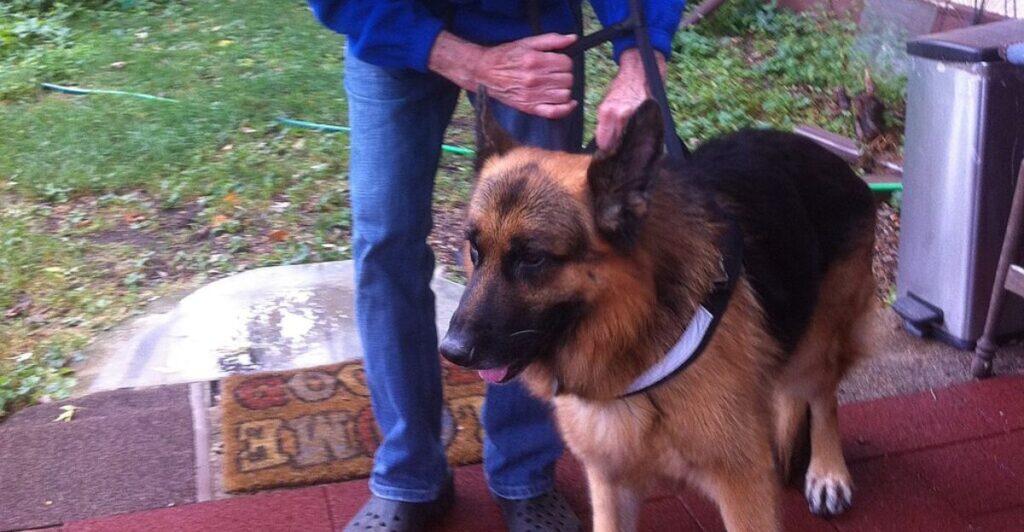
Brace and mobility support dogs bring more than just stability to individuals with limited mobility. Trainers train these extraordinary animals to undertake tasks such as operating light switches, retrieving dropped objects, and opening doors.
Dogs offer vital physical assistance by bracing themselves to allow their handlers to lean on them for support during activities like standing up or transferring from a wheelchair. Their presence not only enhances independence but also instills a renewed sense of confidence.
3. PTSD Service Dogs
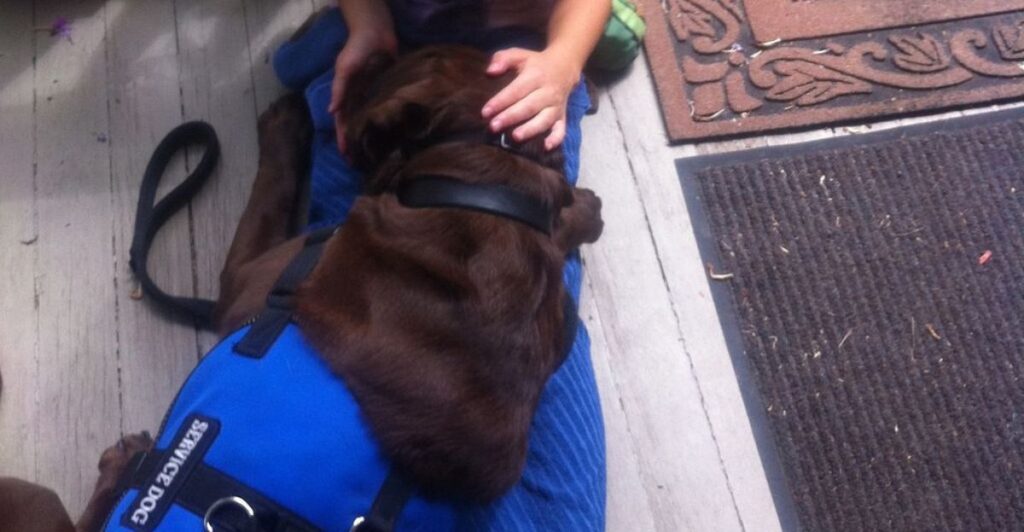
Living with PTSD can feel overwhelming, but trained service animals offer a steadying presence. They detect signs of anxiety or flashbacks and provide grounding through nudges or by leaning in close. Their calm demeanor helps soothe intense emotions, creating a sense of stability in chaotic moments.
With additional skills like creating space in crowds or waking handlers from nightmares, delivering practical and emotional support. For someone dealing with PTSD’s challenges, this partnership provides a sense of safety, builds trust, and restores confidence in everyday situations.
4. FASD Service Dogs

Adults and Children with FASD (Fetal Alcohol Spectrum Disorder) often face unique cognitive and behavioral challenges that require specialized support. FASD service dogs are trained to help manage emotional outbursts, improve focus, and provide a calming presence.
The companionship helps create structure and predictability, which are necessary for people who negotiate the complexities of FASD daily. Such highly skilled dogs serve as a constant source of reassurance, stability, and encouragement for their handlers.
5. Alzheimer’s Assistance Dogs
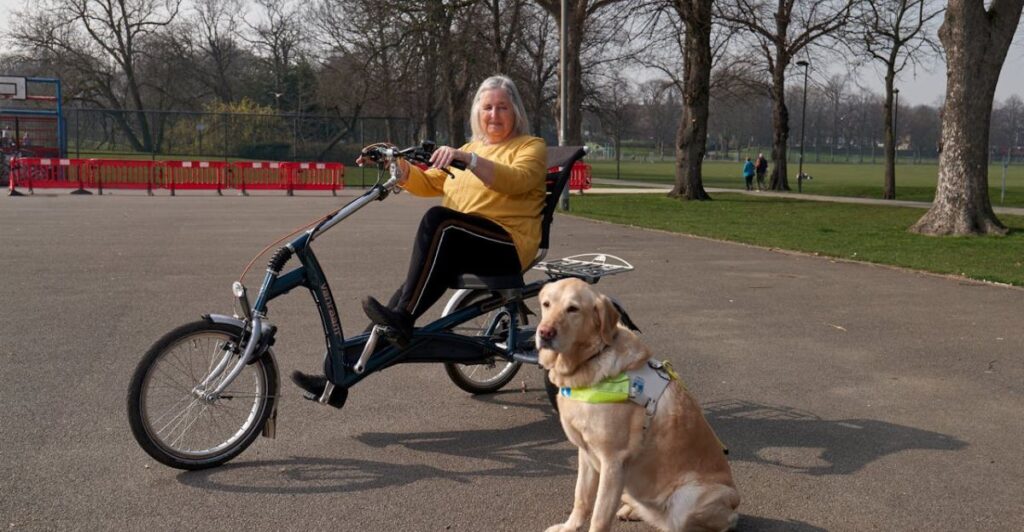
Service animals provide critical help for those living with Alzheimer’s disease. Service dogs assist with daily routines, locate lost items, and safely guide their handler home if needed. Their ability to detect distress or confusion makes them comforting in difficult moments.
Apart from practical skills, they bring a sense of consistency and security that reduces anxiety. By supporting both individuals with Alzheimer’s and their families, these trained companions play a unique role in making daily life more manageable and less overwhelming.
6. Chronic Pain Assistance Dogs

Chronic pain is isolating, but trained service animals offer vital support. They help by retrieving medications, applying pressure for relief, or aiding with mobility to make daily tasks more manageable. Such dogs also provide a constant source of comfort, easing emotional burdens.
With their unique combination of practical skills and unwavering presence, these dogs help individuals face daily challenges with greater confidence and resilience.
7. Narcolepsy Alert Dogs

The unpredictability of narcolepsy, with its sudden sleep attacks, creates challenges that are hard to imagine. Alert animals recognize behavioral, postural, or scent changes signaling an episode and warn their handler to act quickly.
Service dogs ensure safety by taking precautions or notifying others nearby. They might nudge or paw at their handler, bark to alert others, or even lie down beside their handler to protect them during the episode.
8. Cardiac Alert Dogs

Recognizing shifts in blood pressure, heart rate, or physical cues, cardiac alert animals provide life-saving support to individuals with heart conditions. They can detect symptoms like dizziness, chest pain, or shortness of breath.
Cardiac alert dogs are trained to do incredible tasks, like calling emergency services with a specialized device or bringing their handler a phone to get help. Some are also taught to lie across their handler’s chest during a cardiac event,
9. Psychiatric Alert Dogs
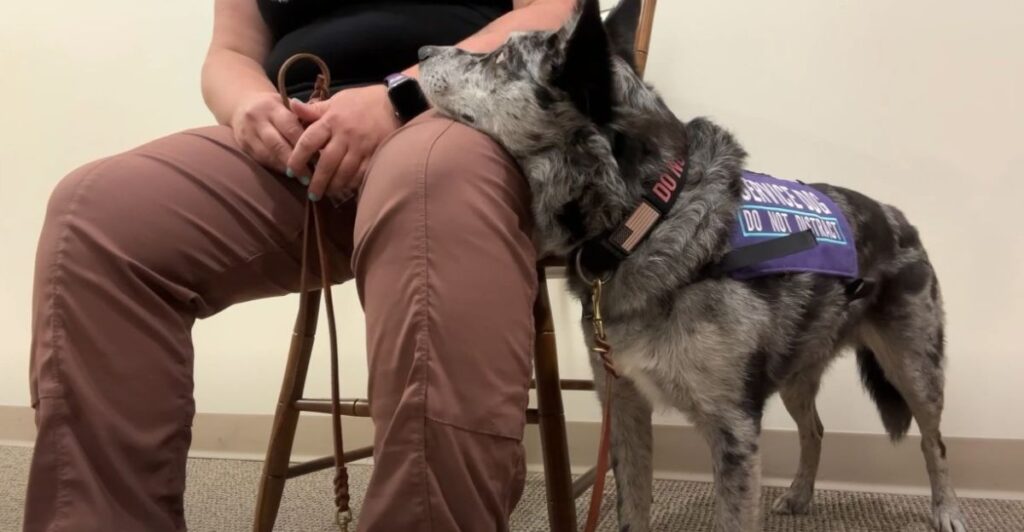
While similar to psychiatric service dogs, these exceptional canines specialize in detecting specific mental health episodes, such as panic attacks or dissociative states. They’re meticulously trained to respond proactively by providing grounding behaviors, fetching medication, or even guiding their handler to a safe space.
Their keen ability to sense subtle changes in behavior, posture, or physiology ensures their handler gets the personalized support they need exactly when they need it most. That makes dogs invaluable partners in mental health management.
10. Allergy Alert Dogs for Non-Food Allergens

Most people associate allergy-alert dogs with food allergies, but some are specially trained to detect environmental triggers like latex, mold, or pollen. By alerting their handler to these substances, they prevent exposure, help mitigate potential health crises, and ensure a safer, more comfortable environment.
These highly skilled dogs are indispensable for individuals managing severe non-food allergies, deriving not just freedom from their constant vigilance but also an added layer of reassurance and improved quality of life.
11. Migraine Alert Dogs
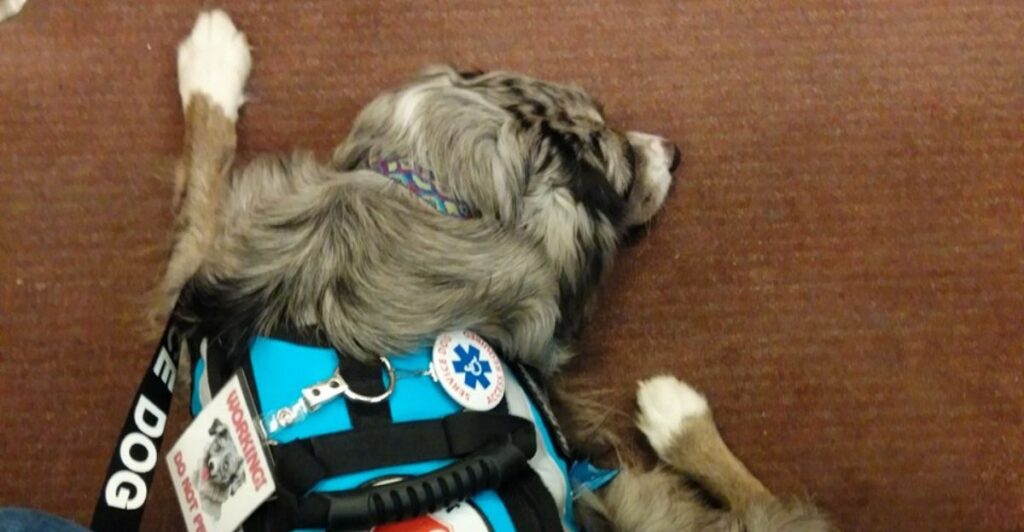
Migraine-alert animals offer life-changing support for individuals prone to migraines. Detecting early signs like shifts in scent or posture, service dogs help handlers prepare for an impending episode.
Their timely alerts enable preventive actions such as medication or resting in a dark, quiet room. Intuitive companions like this bring stability to an otherwise unpredictable condition, reducing the severity of attacks and making handlers approach daily life with ease.
12. Companion Dogs for Trauma Recovery
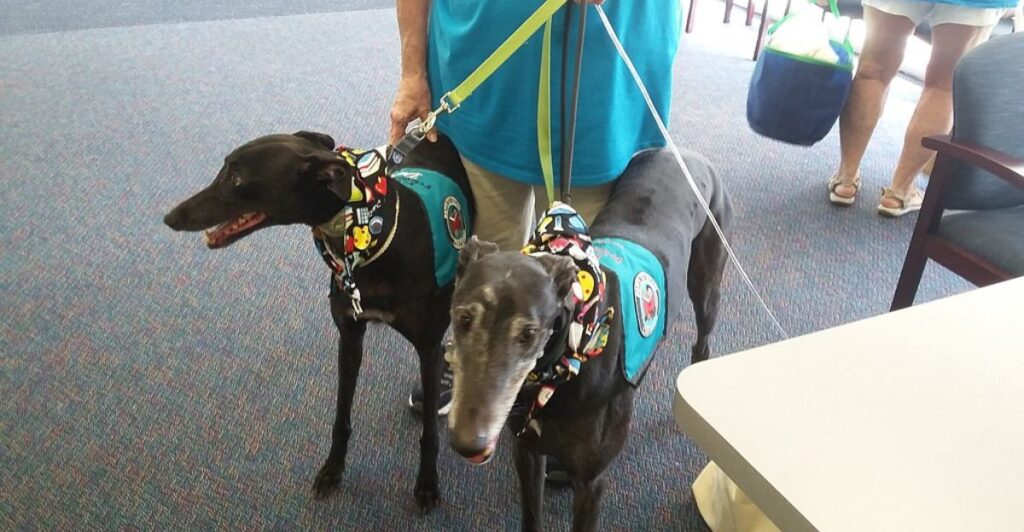
While not traditional service animals, these extraordinary dogs play a pivotal role in emotional recovery from trauma by offering unparalleled support. Trained to provide consistent emotional care, they help individuals rebuild trust, manage anxiety, manage overwhelming emotions, and regain a profound sense of safety.
These dogs, often referred to as emotional support animals (ESAs), can sense their handler’s emotional needs and offer comfort during distress. Their constant, non-judgmental presence helps reduce feelings of isolation and loneliness, especially for those recovering from trauma.
Stay connected with us for more stories like this! Follow us to get the latest updates or hit the Follow button at the top of this article, and let us know what you think by leaving your feedback below. We’d love to hear from you!







